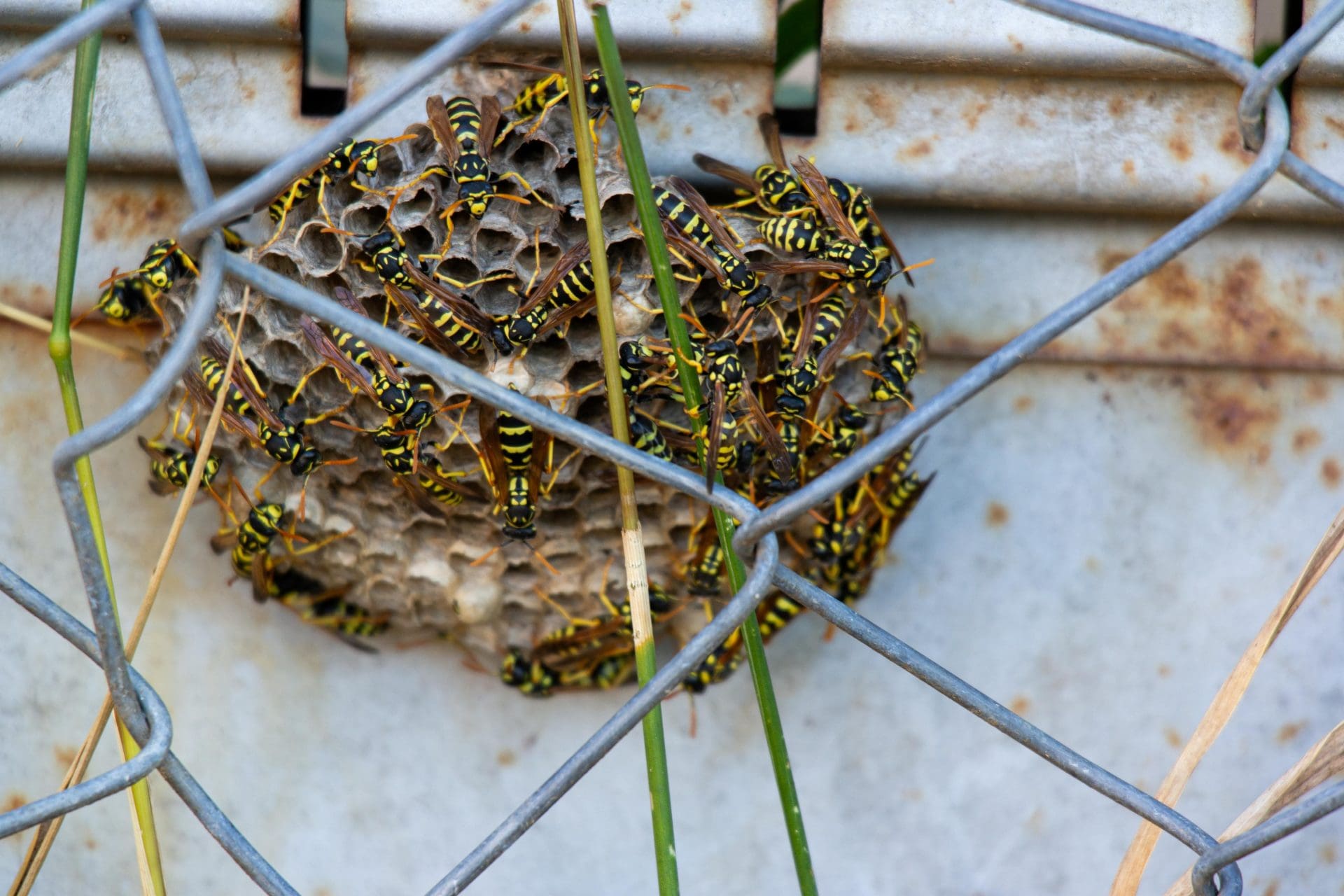
Get a quote
or email usThank you for the quote request
We will aim to get back to you as soon as possible.
Email us
or get a quoteThank you for your email
We will aim to get back to you as soon as possible.
We will aim to get back to you as soon as possible.
We will aim to get back to you as soon as possible.
The Buzz
Get all of your UK pest control updates here at The Buzz!
As spring arrives, queen wasps emerge from hibernation and begin searching for the ideal nesting spot, often choosing the most inconvenient places for us. However, with a few simple proactive steps, you can greatly reduce the chances of a wasp nest becoming established.
In the early stages, a wasp nest can be as small as a golf ball and is often hidden in lofts, sheds, eaves, or outbuildings. Spotting a nest at this stage is far easier than dealing with a large, active colony later in the summer.
Inspect vulnerable areas regularly: Check roof voids, sheds, under decking, vents, and soffits for signs of wasp activity.
Keep bins securely shut: Wasps are highly attracted to sweet-smelling food waste. Ensure bin lids are tightly closed and clean them regularly to remove any residue.
Avoid leaving food outdoors: Minimise exposure of sugary drinks, food scraps, or pet bowls outside. Even crumbs or small spills can invite unwanted guests.
Sometimes, despite your best efforts, a nest may still appear. Whether it’s hidden in a loft corner, garage, or behind a wall, you’ll often notice a steady increase in wasp traffic as the colony grows.
That’s when it’s time to call Vergo Pest Management. Our expert technicians can locate the nest and safely treat it to make it inactive, without disrupting your home or business. Once treated, a nest won’t be reused and can be safely left in place.
Trying to deal with a wasp nest on your is dangerous and may lead to serious medical emergencies. If in doubt – call us out!
For help preventing wasps or treating an active nest, contact Vergo Pest Management today. We’re here to help keep your property wasp-free.
Do you have a pest or property care problem?
We're here to help.